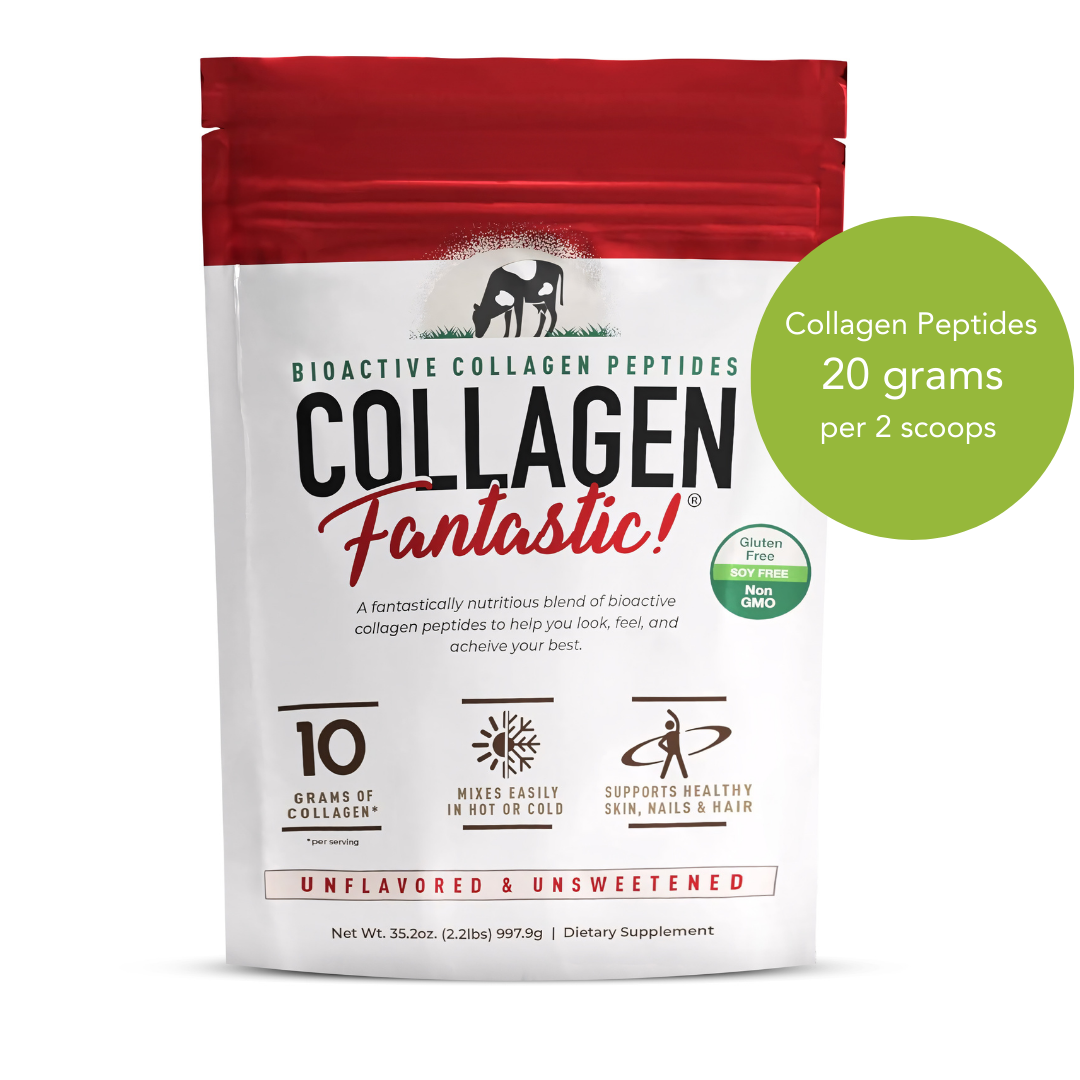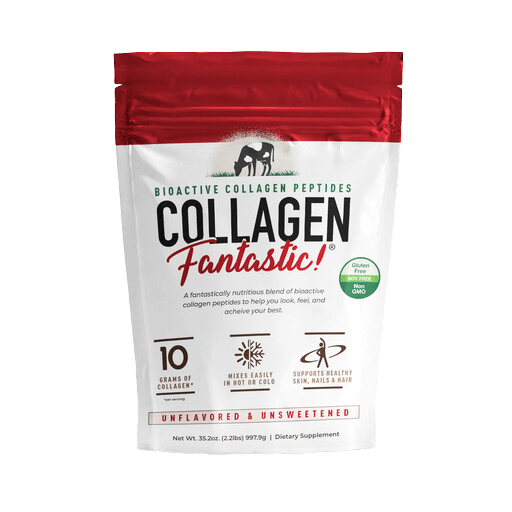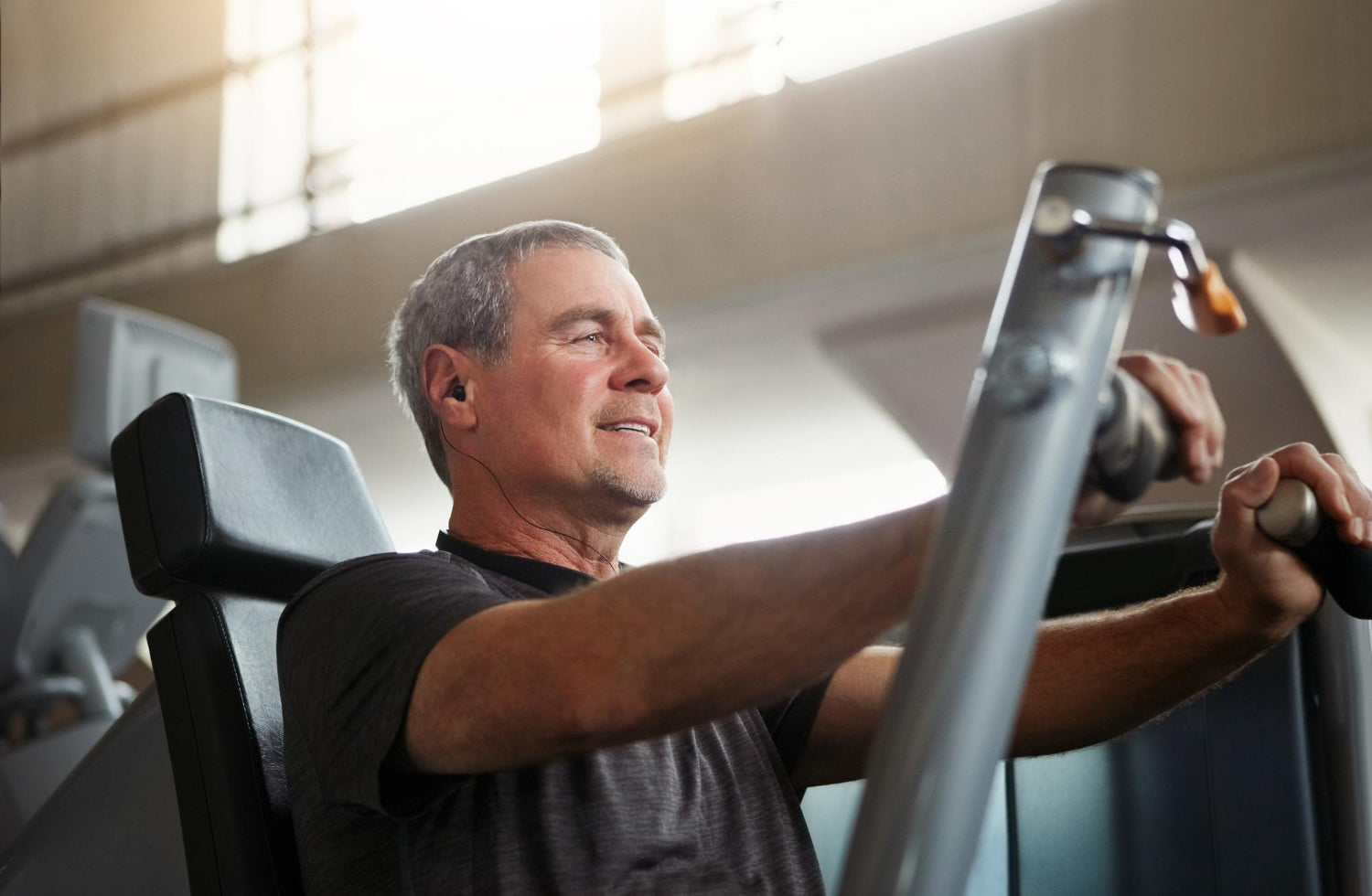Key Takeaways
-
Protein is essential for aging well, helping preserve muscle mass, bone density, and mobility.
-
Higher protein intake supports recovery, immune health, and energy, especially for adults over 40.
-
Grass-fed whey and collagen are top choices for clean, effective protein that fuels healthy aging.
Aging is inevitable, but the way we age is largely influenced by our daily choices, particularly nutrition. After the age of 30, most adults begin to experience gradual muscle loss, a process known as sarcopenia. Bones lose density, joints become stiffer, and metabolism slows, making it easier to gain fat and harder to stay active. The good news is that nutrition, and protein in particular, can have a profound impact on slowing these changes and maintaining strength, energy, and independence.
Protein is not just about building muscle or bulking up — it is the building block for every cell in the body, essential for repairing tissues, supporting bones and joints, maintaining immune function, and even sustaining energy. For adults over 40 who want to stay vibrant and active, protein becomes one of the most critical nutrients to prioritize. By choosing clean, high-quality sources like grass-fed whey and collagen, you can ensure that your body receives the nutrients it needs without unnecessary additives or fillers.
Looking for a clean, delicious protein powder? With 30g of protein per serving, no added sugars, flavors, sweeteners or colors, Whey Fantastic is as clean as it gets.

Protein Preserves Lean Muscle
One of the most significant changes with age is the gradual loss of lean muscle mass. Maintaining muscle is essential not only for strength but for overall health, metabolism, and mobility. Protein intake stimulates muscle protein synthesis, the process by which the body builds new muscle tissue. Older adults may require slightly more protein per meal than younger individuals to effectively trigger this process.
When muscle is preserved through adequate protein intake, daily activities such as lifting groceries, climbing stairs, and even simple balance tasks become easier. Maintaining lean muscle also helps protect against falls, frailty, and the physical decline that can make aging more challenging. In short, protein is the foundation for staying strong and independent as we get older.
Strengthening Bones Through Protein
Bone health often takes center stage in conversations about aging, but protein plays a crucial, sometimes overlooked role. Bones are made up of both minerals and a protein matrix, and without sufficient protein, the structure of bones can weaken over time. Research shows that adults consuming higher amounts of protein alongside calcium maintain better bone density and experience fewer fractures.
Grass-fed whey protein, in particular, provides bioavailable calcium along with amino acids that help support bone health. By pairing protein intake with regular weight-bearing exercise, adults can slow age-related bone loss, protect against osteoporosis, and maintain mobility and confidence in daily activities.
Protecting Joints and Connective Tissue
As we age, joints and connective tissues become more prone to wear and tear. Proteins, especially collagen, supply the amino acids necessary to repair cartilage and maintain joint flexibility. Incorporating collagen alongside other protein sources, such as whey, can reduce stiffness, improve comfort, and support the ability to stay active. Healthy joints are essential not just for fitness but for daily life, from walking and gardening to climbing stairs or carrying grandchildren.
Supporting Recovery and Reducing Fatigue
Recovery becomes slower with age, and soreness after exercise or even daily activity can linger longer than it once did. Protein helps repair muscles efficiently, shortening recovery time and reducing the risk of injury. In addition, protein-rich diets contribute to sustained energy throughout the day, helping adults feel less fatigued and more capable of maintaining an active lifestyle. Regular protein intake ensures that your body can repair itself after stress, illness, or exercise, keeping you vibrant and resilient.
Protein and Weight Management
Metabolism slows as we get older, making it more challenging to maintain a healthy weight. Protein plays a crucial role in weight management by increasing feelings of fullness, supporting lean muscle retention, and slightly boosting calorie burn during digestion. Adequate protein intake makes it easier to maintain a healthy body composition, which reduces stress on joints, lowers the risk of metabolic disease, and contributes to overall well-being. For adults over 40, protein isn’t just about building muscle; it’s a key factor in maintaining vitality and health.
Preserving Muscle and Combating Sarcopenia
Sarcopenia, or age-related muscle loss, can start as early as the 30s and accelerate with time. This makes protein intake especially critical for older adults. Studies consistently show that combining higher protein diets with resistance training is the most effective strategy for maintaining muscle mass, strength, and functional ability. Without sufficient protein, muscle loss accelerates, leading to reduced mobility, increased fall risk, and loss of independence. Ensuring adequate daily protein is a preventative measure for long-term health.
Supporting Immune Function
Protein is vital for the immune system, providing the building blocks for antibodies, immunoglobulins, and other critical molecules that fight infection. Aging naturally weakens immune function, but protein-rich diets, particularly those including whey protein, can support immune resilience. Compounds such as lactoferrin and glutathione precursors, naturally found in whey, help older adults stay healthier and recover more quickly from illness or stress.
Fueling Energy and Vitality
Many adults notice a dip in energy as they age. Protein contributes to sustained energy levels by stabilizing blood sugar, supporting neurotransmitter function, and preserving lean muscle. Starting the day with a protein-rich breakfast or incorporating a high-quality protein shake mid-day can make a noticeable difference in alertness, focus, and the ability to maintain daily activity without feeling fatigued.
Supporting Skin, Hair, and Tissue Health
Collagen and protein play a role in healthy aging beyond muscles and bones. Collagen supports skin elasticity, hydration, and tissue repair, which helps reduce wrinkles and maintain a youthful appearance. It also strengthens hair and nails while supporting recovery from minor injuries. While often considered cosmetic, these benefits reflect overall tissue health and structural integrity, key factors in feeling strong and healthy with age.
Choosing Clean, High-Quality Protein
Not all protein is created equal. Clean, minimally processed protein sources such as grass-fed whey and collagen provide amino acids and nutrients without unnecessary additives, fillers, or artificial ingredients. Grass-fed whey provides fast-digesting protein, essential amino acids, and bioactive compounds, while collagen supports joints, connective tissue, and skin health. Choosing high-quality protein ensures your body receives what it needs to thrive at every stage of life.
Conclusion
Aging doesn’t have to mean slowing down or losing strength. Protein is a cornerstone nutrient that supports muscle, bones, joints, immunity, and overall vitality. For adults over 40, prioritizing protein through clean, high-quality sources like grass-fed whey and collagen can help maintain independence, energy, and resilience for years to come. At Fantastic Nutrition, we’re committed to providing effective, clean protein options that make healthy aging not just possible, but enjoyable.
Frequently Asked Questions (FAQs)
1. How much protein should adults over 40 consume each day?
Experts recommend 1.2–2.0 grams of protein per kilogram of body weight daily for older adults, depending on activity level, to support muscle, bone, and overall health.
2. Is whey protein suitable for older adults?
Yes. Whey protein is easily digested, rich in essential amino acids, and particularly high in BCAAs, which help preserve and build muscle.
3. Should I use collagen or whey protein for healthy aging?
Both can be beneficial. Whey protein supports muscle and bone health, while collagen supports joint, connective tissue, and skin health. Many adults benefit from incorporating both into their nutrition.
4. Can higher protein intake be harmful for older adults?
In healthy adults, higher protein intake is safe and beneficial. Those with kidney disease or other health conditions should consult their healthcare provider before increasing protein consumption.











